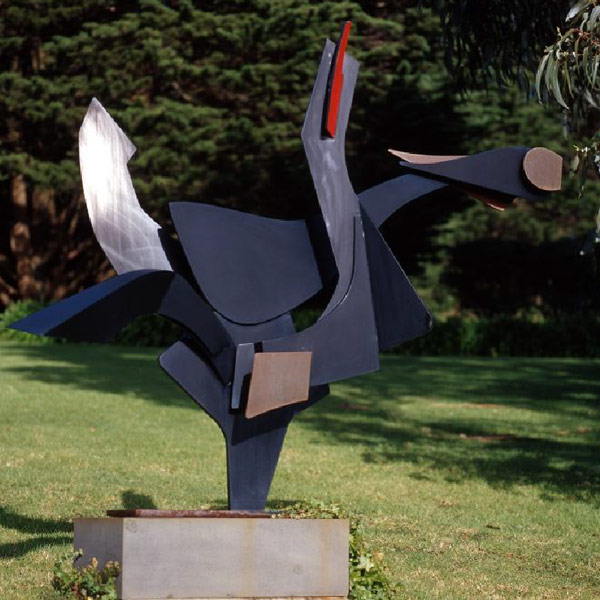Inge King’s Calypso conveys a sense of great energy and joyful movement. Its areas of bright red set against the black of the steel contribute to the vitality of the work. In a letter to Baillieu Myer the artist gave two definitions of the title: ‘Calypso: a name given to a form of folk music native to the West Indies, which has become part of Western dance music, expressing love and joy’.
Alternatively, she noted: ‘The classical Calypso was the daughter of Atlas and lived on the island Ooygia.’ In this work the impression is certainly one of exuberance rather than of classical restraint. The forms, abstracted from the human figure, convey the sense of an exultant dance. Yet for most of her long career King had avoided reference to the figure.
